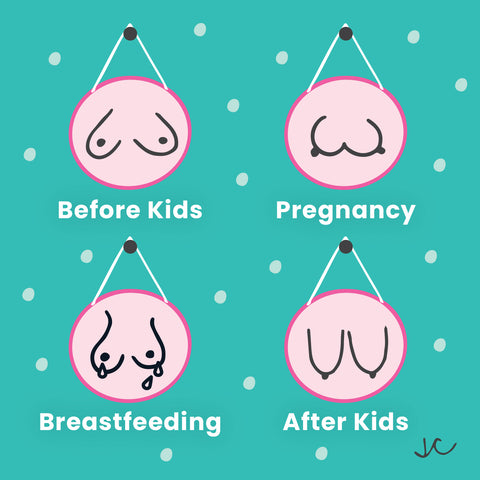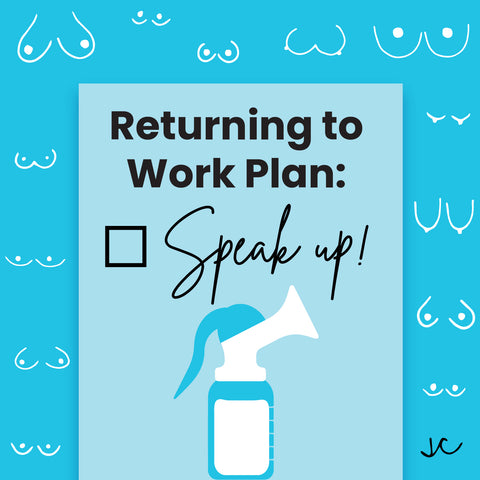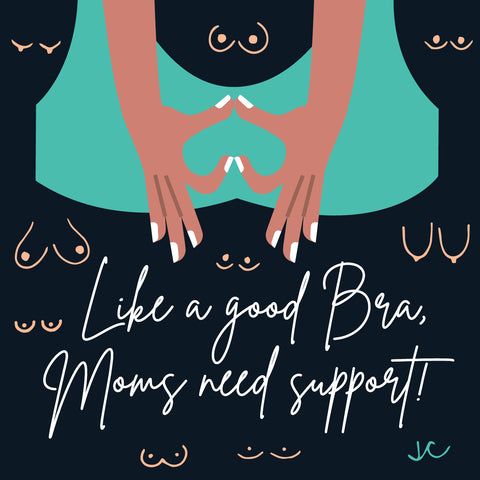What Does a Midwife Do, and Do I Need One?

Estimated read time: 12 minutes
Read on for everything you need to know about Midwives
Ever wondered what a midwife does? Or the difference between a midwife and a doula? We’re here to break down everything you need to know about midwives.
Pregnancy, labor, and giving birth are extremely personal experiences.
This is why, in most cases, you have a choice about the kind of care you’d prefer to receive during this special time.
Midwives are one of the options available. Midwives have been around for centuries, and historically, it was standard for midwives to attend and be in charge of most births.
So, what does a midwife do? What are the pros and cons of midwife vs OBGYN? And just what are the benefits of a midwife?
Fear not Breastie, in this article we’ll be looking at everything you need to know about midwives, so you can make the best decision for you and your precious lil’ bun in the oven.
In this article:
- What does a midwife do?
- Difference between midwife and doula
- Do I need a midwife and a doula
- Midwife responsibilities
- Benefits of a midwife
- Pros and cons of midwife vs OB/GYN
- How much is a midwife?
- How to choose a midwife?
This website uses affiliate links which may earn a small commission on purchases made at no additional cost to you.
What does a midwife do?
Before looking at all the things midwives do, let’s define what a midwife is. A midwife is a healthcare provider who deals with pregnancy, birth, newborn care, and postpartum health for the mother. Not only do they provide pre and postpartum care, but they also attend births and offer breastfeeding and nutritional support.
To become a legal practitioner, a midwife must be certified according to the requirements of professional licensing boards, and abide by the rules and regulations set by the US state in which the midwife practices.
While midwives aren’t usually physicians, they do generally work alongside OB-GYNs (obstetricians and gynecologists) in hospitals to make sure you receive all the care you need during your pregnancy, labor, and delivery. If you opt for midwifery care, you would generally have a midwife as your only healthcare practitioner and do not need to have a doctor. Different types of midwives can have various levels of training and different scopes of practice - we’ll look at this a little closer in a hot sec.
Some midwives also provide routine care related to pregnancy and fertility, such as pelvic exams, birth control, and Pap tests.
As they tend to be more holistic and encouraging of natural approaches to pregnancy and birth, your doctor might recommend working with a midwife if your pregnancy is considered low-risk. This is one of the main reasons why some mamas choose midwife care if they want to give birth at home, or have a nonmedicated birth, and avoid surgical intervention.
In some states, midwives must work in a collaborative practice with a doctor, and in others, they can work in a solo practice.
Difference between midwife and doula?
Midwife vs Doula? In order to understand the difference between midwife and doula (you can read all about the amazing work doulas do in our article here), it’s important to understand what both professions do.
Many people think the roles of a midwife and a doula are the same, however, they actually have very different duties, training, and certifications. We’ve already looked at what the role of a midwife is, so now let’s look at doulas to see the midwife vs doula comparison.
We like to think of doulas as a mama-to-be’s BFF. They are there to support you in every way, being by your side and acting as your advocate during such a vulnerable time. There are several different types of doulas, including a birth doula and a postpartum doula. A birth doula will be by your side during labor and delivery, providing emotional and physical support, offering non-medical techniques to help with pain, and generally helping you feel safe, comfortable, and empowered throughout your birth.
Postpartum doulas help new parents recover from birth, care for their new baby, provide breastfeeding support, and play a role in the home by helping with housework, looking after mom and baby, caring for siblings, etc.
Now, not all doulas go through a certification process, and certification is typically not required (but this can vary by state). Many doulas obtain formal training, but untrained doulas can still provide excellent support.
This is the main difference between midwives and doulas.
Whether certified or not, doulas do not have any medical training, therefore they cannot be part of any medical aspects of birth. A doula, while incredibly important, comforting, knowledgeable, and supportive, is not a substitute for a midwife or doctor.
When choosing between a midwife and a doula consider the doula vs midwife differences and see how that matches your needs.
Do I need a midwife and a doula?
It completely depends on what you want mama. There can be benefits of having a midwife and a doula... a midwife and doula team, if you will.
You need a midwife or OB-GYN to take you through pregnancy and birth, and you have the option of hiring a doula to help make the experience more tailored to your desires. Think of a doula as your cheerleader…your very knowledgeable cheerleader that is! They are there to support you emotionally and physically through your birth. To speak up for you and understand your birth plan so they can advocate for you if needed.
If you want to have a doula as part of your birth team, then go for it. They cannot take the place of a trained medical professional, but they can provide the extra comfort, reassurance, and encouragement you need to have a positive birth and postpartum experience.
Having collaborative care with a midwife and doula may be just the thing you need, however, it is not required.
Midwife responsibilities
What are midwife duties, you may ask? The responsibilities of a midwife go far beyond labor and delivery. Do they deliver babies? Yes - but the role of a midwife do so much more.
Their duties cover all areas of maternal and infant health care. To get an idea of midwife responsibilities, here is a round-up of just some of their duties and responsibilities of midwives when they work with mamas:
Some of the responsibilities of a midwife include:
- Confirming and dating your pregnancy
- Monitoring your baby’s health, growth, and position
- Examining and monitoring your progress throughout your pregnancy
- Doing routine screening tests
- Assisting you during labor and delivery
- Administering any medications needed if necessary
- Delivering your baby and placenta
- Carrying our newborn checks and examinations
- Assisting the baby by performing resuscitation if needed
- Carrying out all routine checks and evaluations of you and your baby
- Providing breastfeeding support and guidance if you choose to breastfeed
- Going through newborn care
- Family planning consultations (you may not be thinking about it, but it’s nice to have a plan in place)
More than all this, midwives care for women and accompany them on one of the biggest journeys they can make - having a baby. Midwives therefore also need certain skills and traits to aid their responsibilities. In particular, they should be excellent communicators, compassionate, empathetic, patient, passionate, flexible, caring, and supportive.
Benefits of a midwife
One of the main benefits of a midwife is that they can deliver babies in several different birth settings, including birth centers, hospital maternity units, or even in your own home.
Some other benefits of a midwife include:
- Supporting your emotional and physical wellbeing
- Answering any and all questions you might have
- Supporting your birth choices
- Provide care that combines conventional and holistic recommendations
- Giving constant guidance and support throughout the entire pregnancy
- Being an active presence and support through labor and delivery
- Providing postpartum support including feeding advice and supporting your emotional well-being after birth
Another benefit of a midwife we love is how their care focuses on education and empowerment. Your midwife will spend a lot of time with you during your pregnancy - much more than doctors do - and they always do their utmost to personalize their care based on what you want.
Pros and cons of midwife vs OB/GYN
If you are considering a midwife, there are som pros and cons. While licensed and certified midwives are highly trained and skilled when it comes to pregnancy and natural birth, a midwife isn’t a doctor. Let's look at the pros and cons of midwife care.
A midwife wouldn’t be able to perform a C-section on their own (without a doctor present), but they can prescribe any necessary medications needed during labor and delivery if needed.
If, for example, a midwife was supporting a mama during labor, and it turned out that she needed an emergency C-section or surgical intervention, they would have to call the on-site physician to attend. You midwife can however assist the doctor performing the procedure, so you’ll have the reassurance of having your midwife with you.
There are some other examples of when a midwife may need to transfer your care to a physician, including:
- If you have high blood pressure, heart disease, or diabetes
- Pregnancy complications such as preeclampsia, premature labor, or multiples
- If your little one is breech at 37 weeks
- If your baby shows signs of distress during labor/delivery
- If your labor stops progressing
- If you experience heavy bleeding
While midwives are known to promote natural, vaginal birth for low-risk pregnancies, they are skilled at identifying when a pregnant woman needs the help of an OB-GYN during birth, and will always transfer care if needed.
Midwives and OB-GYNs can also work alongside each other, depending on where you have your baby, and there are times when you can have both an OB-GYN and a midwife caring for you.
How much is a midwife?
If you choose to work with a midwife during your pregnancy and delivery, it might end up costing you less than if you were to go under the care of OB-GYNs. Midwives and birthing centers (or homebirths if you choose to have your little one at home) tend to charge less than hospitals and physicians, however, there still are midwife fees.
So how much does a midwife cost exactly?
Depending on where you live, the cost of a midwife can range anywhere from $3,000 to $9,000 upward. This flat fee typically covers all prenatal, birth, postpartum, and newborn care. It doesn’t, however, include any labs, ultrasounds, or birthing supplies. In many cases, insurance plans should cover midwife care, however, when budgeting for midwife services it’s definitely worth speaking to your insurance provider first to make sure.
How to choose a midwife
Looking for some tips for choosing a midwife? When it comes to how to choose a midwife, the most important factor you need to consider is finding someone who you like, feel comfortable with, and trust.
When selecting the right midwife, you need to make a connection and feel confident that they respect your opinions and wishes when it comes to your labor and delivery.
In choosing a midwife, you should also take into consideration the years of experience and training your midwife has. There are two types of midwives - Certified Nurse Midwives (CNMs) and Certified Direct-Entry Midwives.
CNMs can do many of the same things as doctors, and they must become registered nurses first and then complete a Master’s degree in midwifery prior to becoming certified. Certified Direct-Entry Midwives, on the other hand, do not need to be nurses and tend to have a narrower scope of practice than CNMs.
We hope this helps when finding the best midwife for you.
Midwives are superheroes. And so are you mama!
There are so many advantages of midwife care. From monitoring you and your baby’s health throughout your pregnancy to providing physical and emotional support from pregnancy to birth and beyond, midwives are superheroes.
We hope you now have a better understanding of what a midwife does, the positive aspects of midwifery, and the benefits of choosing a midwife. Now it is up to you to decide if you’d like to work with one during your pregnancy.
Remember mama, this is your body and your choice. So whether you choose to have your baby with a physician in a hospital, at a birth center with a midwife, or in your home with a midwife and doula (or anything else), as long as you are happy and comfortable, it’s the right choice for you.
We’re proud of you Breastie.
At Titty City Design, we believe that every boobie is beautiful, and that should be celebrated. We are a female-owned and operated, small business here to spread self-love and body positivity with our line of boob apparel, boob accessories, and boob-themed decor and products for the home. A portion of our proceeds goes to help support postpartum people and breast cancer patients.
Unique Gifts for New Moms They Will Love
















